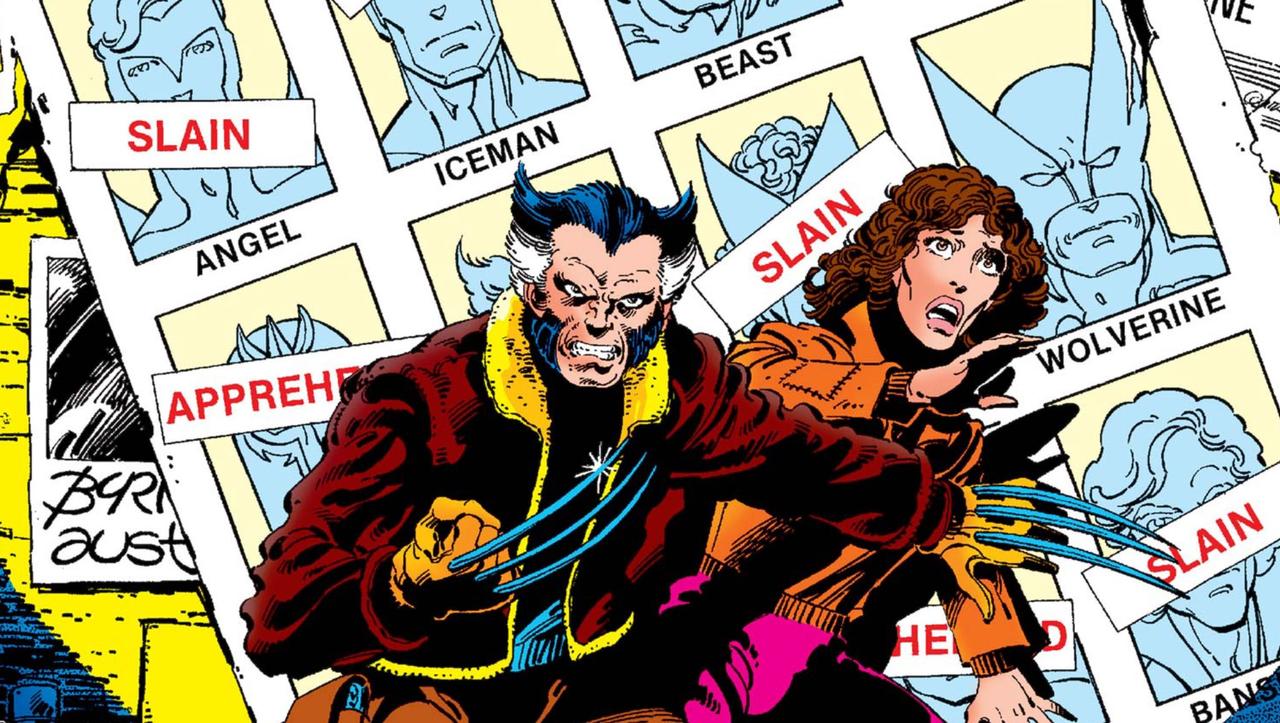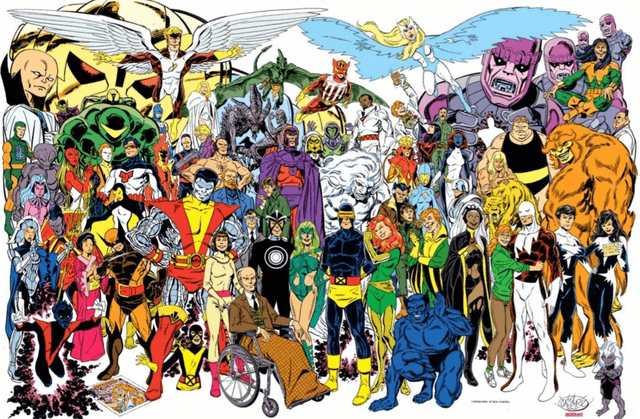If you click on a link and make a purchase we may receive a small commission. Read our editorial policy.
What makes a quintessential X-Men story, according to two of Marvel's longest-serving editors
Tom Brevoort and Louise Simonson both have had illustrious careers as editors at Marvel Comics, and they offered their takes on the essence of an X-Men story at Baltimore Comic Con 2024

Popverse's top stories
- "And my axe!" Lord of the Rings star John Rhys Davies says there's one world leader who deserves Gimli's iconic weapon
- Wonder Man is the Andor of Marvel Studios’ modern TV series on Disney+
- Absolute Batman happened because DC Comics writer Scott Snyder got bored reading about ‘superhero fatigue’
At this point in time, the X-Men are a generational affair. That is, there are multiple generations of X-Men fans with their specific comic book touchstones. Baby Boomer X-Men fans may remember reading the mutants' earliest adventures by Jack Kirby. Gen X readers may have fond memories of reading the Inferno storyline and the aptly-titled Generation X series. Meanwhile, scores of millennial X-Men fans (like yours truly) were forged in the fires of Grant Morrison and Frank Quitely's New X-Men. The X-Men have been interpreted time and time again, so what makes a quintessential X-Men story?
This was the question posed to Tom Brevoort and Louise Simonson at Baltimore Comic Con. Breevort is a longtime editor at Marvel Comics and is currently the purveyor of the X-Men line. Simonson has been both a writer and an editor at Marvel, writing books such as Power Pack and New Mutants. She co-created perhaps the most beloved X-Men character of the 1990s, Cable.
Brevoort began by saying, "I think 'feared and hated by a world they are sworn to protect,' - that kind of sums it up," before detailing that, "Individual characters may be different, have different outlooks and different life experiences, they come from as wide as possible array of backgrounds and orientations and what have you, but the underlying thing is: these characters that are ugly in shape or form, the underdogs, they have to fight for a life in a hostile world."
"Which nobody here can relate to at all," the editor joked.
Brevoort also addressed the recent Krakoa era of X-Men comics: "Even in the Krakoa period, where mutant kind was more ascendant, that was still thematically the problem that they were dealing with every month and every issue of every story. They were just dealing with it from a slightly different position on the board."
Simonson noted the importance of family within X-Men comics: "I think that, because the X-Men was a smaller group back [when Simonson was an editor], another essential for us was the feeling of family, of chosen family. That’s what the X-Men had. There was always a certain warmth to the characters and their interactions; they really cared about each other and I think that still holds true. For X-Men fans to love them, I think they need to love each other."
Both Brevoort and Simonson have contributed immensely to X-Men lore, and their responses reflect the core values of the group as they have grown over the years. X-Men fans of all generations can probably think of a few stories that illustrate what Brevoort and Simonson spoke about.
To me, my X-Men fans. Want more about Marvel's mutants? You don't need Cerebro to find what you should read next... we made a list!
- The best X-Men comics
- Every Omega-Level X-Men mutant ranked by power
- Why the Krakoan Age of X-Men was ended by Marvel
- How to watch the X-Men movies in order
About Baltimore Comic Con 2024
Dates
-
Follow Popverse for upcoming event coverage and news
Find out how we conduct our review by reading our review policy
Let Popverse be your tour guide through the wilderness of pop culture
Sign in and let us help you find your new favorite thing.
















Comments
Want to join the discussion? Please activate your account first.
Visit Reedpop ID if you need to resend the confirmation email.